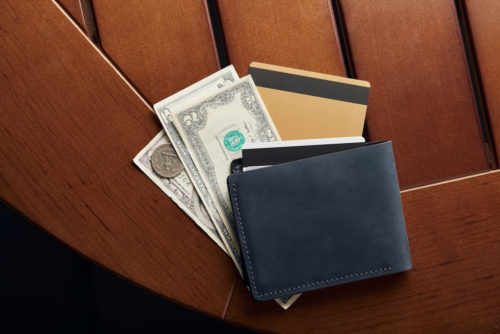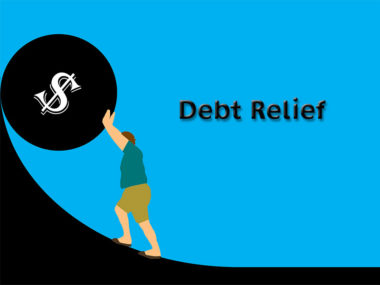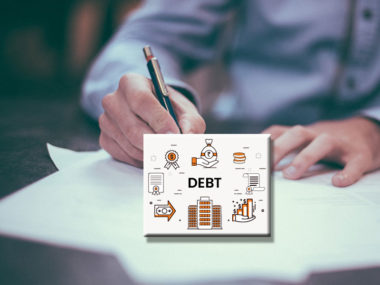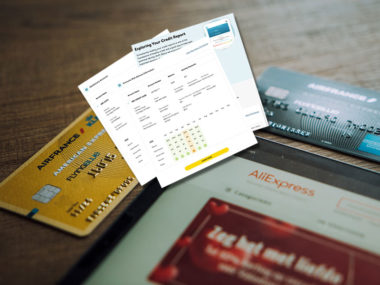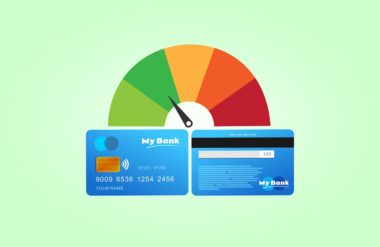As a consumer, you’ve probably faced the internal battle of which is better — a credit card or cash? The truth is they both have their own pros and cons. It comes down to your financial goals.
Discover the benefits using cash can provide, as well as the instances where it’s better to use credit. We’ll also discuss the cons of each payment method so that you can choose which is best for you and your wallet.
Table of Contents
Benefits of Using Cash
It’s good to always have cash on hand for when you are faced with “cash only” instances. But this isn’t the only reason to have cash in your wallet. Other benefits of using cash for purchases include:
- Budgeting made easy: With cash, your spending is limited. You can’t spend more money than you have on hand.
- No fees: There are no fees or monthly payments that need to be met when you carry cash.
- Debt-free: You don’t run the risk of going into debt when spending cash. Credit cards allow people to spend beyond their means and ultimately put them at risk of going into debt.
- Privacy: Purchases made in cash can’t be traced.
- Cash only: Some stores operate as cash-only establishments.
Cons of Using Cash
While using cash certainly has plenty of benefits, it does come with some cons. The cons of using cash include:
- There aren’t rewards: Using cash doesn’t come with a rewards program like some credit cards do.
- Purchases aren’t protected: If you lose cash, it’s hard to get it back. When you lose a credit card, you can cancel that card or dispute a fraudulent charge and have it removed from your bill.
- Emergencies can be difficult: In the event of an emergency, you may require a large sum of money that cash can’t provide.
- ATM fees: In some cases, ATMs charge a fee to remove money from your bank account.
- No credit: Always paying in cash doesn’t help your credit score.
- Limiting where you purchase: In some cases, you can’t pay using cash, like when booking a hotel reservation online or over the phone.
- No records: It can be difficult keeping track of exactly where your money is spent.
Benefits of Using Credit Cards
In addition to boosting your credit score, using a credit card offer several benefits to consumers, including:
- Rewards: Various credit card companies offer rewards programs that benefits their customers, such as mileage plans or cashback programs.
- Protection: Most credit card purchases are protected from fraud under the Fair Credit Billing Act. Additionally, most credit card companies allow you to file a dispute in the event that your card is stolen or used for fraudulent purchases.
- Buy almost anywhere: You can make purchases online or over the phone with ease.
- Emergency funds: Credit cards allow you access to more funds in the event an emergency occurs.
- Pay over time: You can make big purchases and chip away at them over time.
- Low rates: Some credit cards have introductory offers that give new users a 0% interest rate on purchases made within a certain period of time.
Cons of Using a Credit Card
Just as with cash, credit cards do come with a few cons, including:
- Fees: Credit cards mean overdraft fees if you go beyond your credit limit and late payment fees if you miss a bill.
- Overspending: It’s easy to overspend with a credit card because of your credit limit. You may have a credit limit of $5,000, but that doesn’t necessarily mean you have $5,000 to pay off that bill.
- Debt: A balance on your credit card bill could eventually put you in debt depending on interest rates and your payment history.
- Fraud: Credit card fraud is a very real risk — your information can be stolen and used to make fraudulent purchases.
- Credit score: If you miss payments on your card, your credit score could suffer.
When Should You Use Your Credit Card?
There are certain situations where you should absolutely use a credit card to make a purchase. Those instances include:
- When you want to rack up rewards, like cash back or travel miles, or receive a signup bonus.
- When you want to protect yourself from fraud or identity theft.
- When you’re not sure how much money you’ll need for a purchase.
- When you need a grace period to pay for a big purchase.
- When you want to build credit.
- When you’re worried about carrying cash on your person and having it stolen.
- When you need emergency funds.
- When you’re traveling.
When Should You Pay With Cash?
Similarly, there are specific situations where it’s best to use cash. Use cash:
- When you’re trying to control your spending habits.
- When you are already carrying a balance on a credit card.
- When using your credit card would result in fees that you would have to pay.
Throughout life, you’ll run into situations where it will be better to pay with cash and situations when it’s better to use a credit card. How you pay will ultimately come down to your personal financial situation at the time.
Image Source: https://depositphotos.com/
